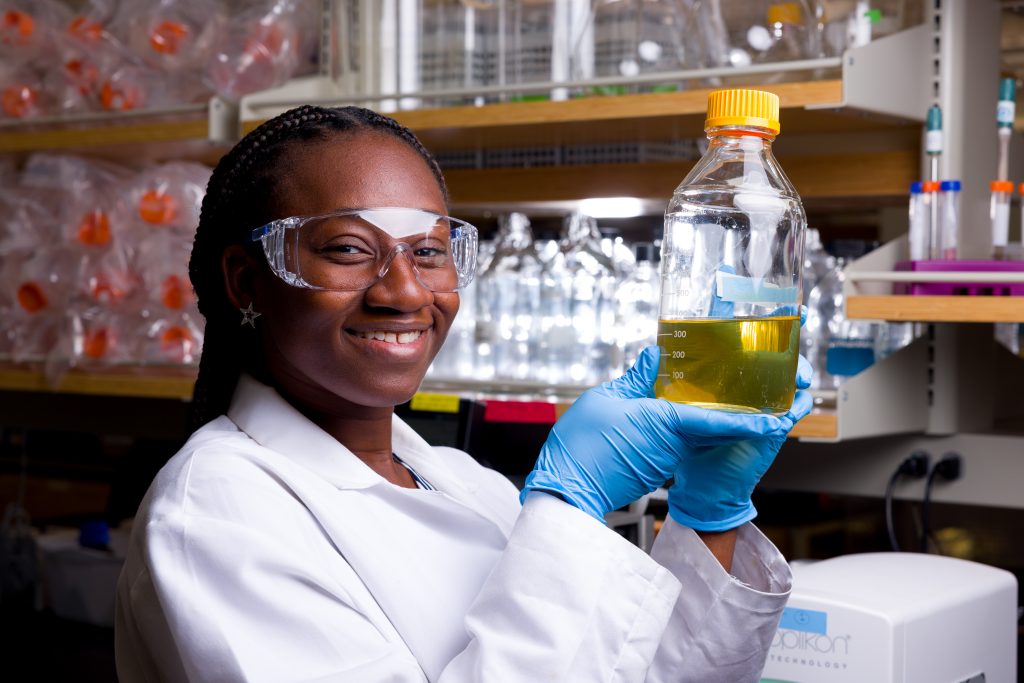Fermentation scale-up research jumps the lab-to-production gap
Author: Cyclone Engineering
Author: Cyclone Engineering

A group of Iowa State researchers, led by Rodney Fox, CoMFRE executive director, is collaborating with Cargill and Genomatica to scale-up fermentation processes. The award was announced at the White House Summit on the National Biotechnology and Biomanufacturing Initiative.
The project starts by perfecting fermentation techniques in the small laboratory scale.
“What makes simulation and scale-up of bioreactors difficult is the fact that microorganisms, which function as small chemical factories, are heavily influenced by both the microenvironment that they are in, and also the microenvironment’s trajectory, or history,” says Dennis Vigil, CoMFRE affiliate and professor of chemical and biological engineering. “As the bioreactor size increases the heterogeneity of microenvironments increases, which makes prediction of the overall performance of the bioreactor more difficult. This is the problem we are trying to address by first understanding how microorganisms perform in a uniform homogeneous environment.”
Both Fox, who is also Hershel B. Whitney Professor, Global Initiatives, and Anson Marston Distinguished Professor in Engineering, and Vigil specialize in multiphase reactor design and analysis.
Ted Heindel, CoMFRE center director, Bergles Professor in Thermal Science and University Professor of mechanical engineering, and Alberto Passalacqua, CoMFRE associate director and associate professor of mechanical engineering, bring expertise in measurement and computational fluid dynamics. And Zengyi Shao, associate professor of chemical and biological engineering, leverages her expertise in the manipulation of microbes that drive the fermentation process.
Cargill and Genomatica will then team up to move the process to large-scale production of a new generation bio-based intermediate chemical product used by many industries. It will be produced in a new facility at Cargill’s Eddyville, Iowa, operation.
A portion of $2.5 million funding for the project is from BioMADE, a manufacturing innovation institute supported by the Department of Defense that works to advance research directed at the manufacturing of bio-based products. Iowa State is a governing member of BioMADE.